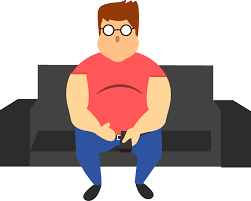Gut Healing

But I will connect this to regular non-cystic fibrosis populations in just a moment. So to gut healing quote, recent evidence shows that vitamin D acts to maintain the integrity of the gut mucosal barrier by enhancing intracellular junctions that control mucosal permeability, aka leaky gut, and reduction of pro-inflammatory cytokines or pro-inflammatory molecules. Due to effects on the intestinal mucosa or the mucous membrane in the gut, maintenance of sufficient vitamin D status may be essential for the development of healthy gut microbiota, particularly in conditions to find a chronic mucosal inflammation. So again, seeing this theme that vitamin D helps with essentially leaky gut, gut function, the gut barrier, and that leads to healthier gut bacteria. One more study, Gut microbiota interactions with the immunomodulatory role of vitamin D in normal individuals. The role of vitamin D in the maintenance of immune homeostasis or balance seems to occur, in part, by interacting with the gut microbiota.
And just a couple specifics from this study, lipopolysaccharides increase with reduction of vitamin D. Or the lower your vitamin D, the higher lipopolysaccharides are. And lipopolysaccharides are just one measure essentially of leaky gut. Continuing, after adjusting for age, sex, season the season of the year will affect vitamin D levels, of course, sunny months, higher vitamin and BMI or body mass index, there was still maintained an inverse association between vitamin D and Bifidobacterium. So after we adjust for people of different ages, people of different sex, different times of the year, and body weight, all of which can affect vitamin D, we see that as vitamin D goes down, you have a decrease of Bifidobacterium. So there seems to be this positive impact of vitamin D on Bifidobacterium levels. So, all this is very interesting. We see that vitamin D can help with inflammation, leaky gut, and the bacteria in the gut. But it is very important to be able to tie these observations to an actual measurable, meaningful outcome in humans. Do these people feel any better? Because if all this stuff was happening underneath the hood and patients felt worse or the same, then it wouldn’t really be that meaningful.
So it is very important we tie these mechanistic changes to an actual measurable positive outcome in human gut healing. So continuing, Effect of vitamin D on gastrointestinal symptoms and health-related quality of life in irritable bowel syndrome patients: a randomized, double-blind, clinical trial. To summarizing, vitamin D improves IBS symptoms compared to placebo. Key, key finding. And in this study, 50,000 IUs were administered every other week, which if you broke that down to per-day dosing would leave with you about 3500 units, which is pretty common daily dosing for vitamin D, usually between anywhere from 2000 IUs per day to 6000 IUs per day is what’s used.
And I’ll also put a gut healing link in here to our previous episode, where we reviewed this particular study in more detail. So, that’s very exciting. It is also important to keep in mind that there are health benefits that you can only obtain from sun exposure and you cannot obtain solely by supplementing with vitamin D. So it’s important to practice safe sun exposure in addition to supplementing with vitamin D. And in my book, Healthy Gut, Healthy You, I lay out specific guidelines for how to use safe sun exposure to optimize your vitamin D levels. So in summary, we show very exciting evidence that vitamin D can essentially heal the gut; that reduction of gut healing, reduction of leaky gut, and reduction of inflammation in the gut leads to healthier bacteria in the gut; and then most importantly, all these changes summate to an improvement in peoples health, their well-being, and their digestive symptoms. So vitamin D, very important for one’s gut health, is one factor of many to include in your gut healing regimen. This is Dr. Ruscio and I hope this information helps you to get healthy and get back to your life.






